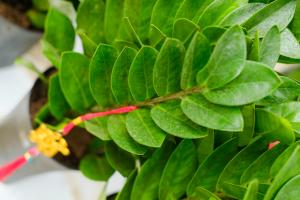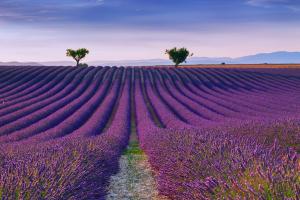Do Plants Oxygenate Water
Plants have been known to play a crucial role in the earth's ecosystem, converting carbon dioxide into oxygen through photosynthesis. Apart from providing oxygen for humans and animals to breathe, plants also play a significant role in purifying water. They do this by releasing oxygen into the water, which improves the water quality and supports aquatic life forms.
How Do Plants Oxygenate Water?
Through a process known as photosynthesis, plants absorb carbon dioxide and use sunlight to convert it into oxygen. The oxygen is then released back into the atmosphere, but in the case of aquatic plants, the oxygen is released into the surrounding water bodies. The process of oxygenating water occurs through tiny openings in the plant leaves known as stomata. These openings allow gaseous exchange to take place, with oxygen being released into the water and carbon dioxide being taken in by the plants.
Why Is Oxygenation of Water Critical?
Aquatic life such as fish, amphibians, and invertebrates need oxygen to survive. When water bodies become depleted of oxygen, it leads to a process known as eutrophication. This process refers to the excessive growth of algae in the water, which consumes all the oxygen leading to a decline in aquatic life populations. Apart from supporting aquatic life forms, oxygenation of water also helps in breaking down organic matter and minerals, leading to improved water quality.
Factors That Affect Oxygenation of Water
Several factors affect the oxygenation of water bodies. One of the critical factors is the number and density of aquatic plants. Plants such as seaweed, pondweed, and elodea have been found to release significant amounts of oxygen into the water. The temperature of the water also plays a crucial role in oxygenation. Warmer water holds less oxygen than colder water, and this can lead to the depletion of oxygen in warmer water bodies. The flow of water is also critical in oxygenation, with moving water bodies such as rivers and streams being better oxygenated compared to stagnant water bodies such as ponds and lakes.
Conclusion
Plants indeed oxygenate water and play a critical role in maintaining the balance of aquatic ecosystems. However, with the rise in pollution and climate change, water bodies are facing numerous challenges, including the depletion of oxygen levels in the water. It's essential to protect our environment and promote the growth of aquatic plants to ensure continuous oxygenation of water and support aquatic life forms.

 how many times do yo...
how many times do yo... how many planted tre...
how many planted tre... how many pine trees ...
how many pine trees ... how many pecan trees...
how many pecan trees... how many plants comp...
how many plants comp... how many plants can ...
how many plants can ... how many plants and ...
how many plants and ... how many pepper plan...
how many pepper plan...
































